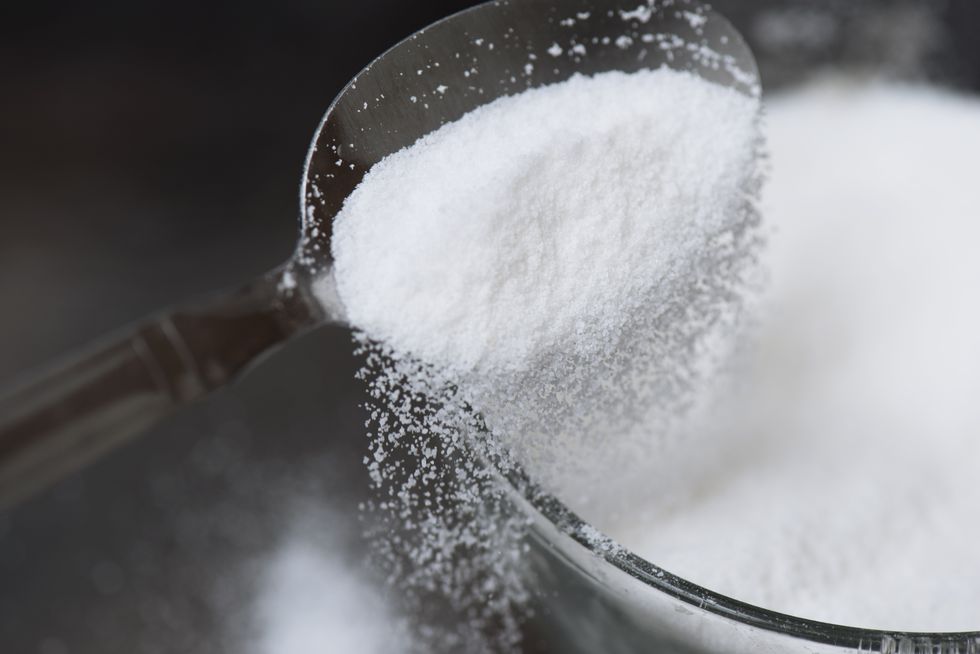Nearly half of all heart attacks occur silently
GETTY
New findings could explain why diet soda drinkers, despite avoiding sugar, still show a heightened risk for metabolic diseases
Don't Miss
Most Read
Trending on GB News
A new study has revealed that aspartame, a common artificial sweetener found in diet drinks and foods, triggers dangerous insulin spikes that accelerate the formation of fatty plaques in arteries.
The research, published in Cell Metabolism, found that consuming aspartame led to faster arterial plaque buildup than regular sugar consumption, raising the risk of heart attacks and strokes.
Aspartame, which is 200 times sweeter than sugar, is widely used in soft drinks, baked goods, candy and other products marketed as sugar-free or diet options.
The sweetener appears to trick the body's receptors into triggering much higher insulin release than normal sugar, leading to persistent elevation of insulin levels.

Aspartame is 200 times sweeter than sugar
GETTY
The study provides new evidence linking artificial sweeteners to increased cardiovascular disease risk through an insulin-mediated inflammatory pathway.
The researchers conducted their study by feeding mice a diet containing 0.15 per cent aspartame daily - equivalent to a person consuming three cans of diet soda per day.
The mice were monitored over 12 weeks and compared with groups fed either no aspartame or a diet containing 15 per cent sugar.
Within 30 minutes of consuming aspartame, the mice showed significant insulin level increases, with these elevated levels persisting throughout the study period.
After just four weeks, mice on the aspartame diet began developing atherosclerotic plaques in their arteries, with these continuing to increase at eight and 12 weeks.
By comparison, mice fed regular sugar didn't develop arterial plaques until the 12-week mark, though they did gain weight and fat.
The findings suggest long-term aspartame consumption may lead to insulin resistance, a major risk factor for type 2 diabetes.
"This research adds to growing concerns about the metabolic effects of artificial sweeteners. While they are often marketed as a healthier alternative to sugar, their impact on insulin dynamics and inflammation suggests otherwise," says Dr Christopher Yi, a board-certified vascular surgeon at MemorialCare Orange Coast Medical Center.
LATEST DEVELOPMENTS:

Sweeteners are widely used in diet sodas
GETTY
Dr Yi explains that aspartame triggers insulin spikes through parasympathetic activation, leading to chronic high insulin levels.
This process increases CX3CL1, an immune signal that attracts inflammatory cells and worsens arterial plaque formation.
"This mechanism could explain why diet soda drinkers, despite avoiding sugar, still show a heightened risk for metabolic diseases," notes Dr Yi.
The discovery of CX3CL1's role may aid drug development, as it becomes locked onto blood vessel walls where it can trap inflammatory cells.








